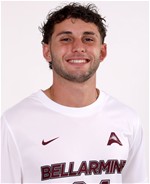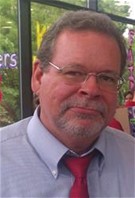What is Computer Science?
Computer Science is the study of computers and computational systems. In this program students become developers, rather than just users, of computer technology through in-depth study of operating systems, software engineering, and networking. Students are exposed to a wide range of foundational courses including basic programming, data structures, logic design, operating systems, compiler construction, algorithms, and software engineering. Courses in artificial intelligence, machine learning, and database technologies are offered as electives, and internships are available.
After completing the program, students are prepared for careers in software development, networking, database administration, and various programming contexts including business, science, and engineering.
What makes Bellarmine's approach to Computer Science stand out?
The Computer Science department has small class sizes and high faculty interaction that ensures students will not become numbers or nameless faces. In addition, Bellarmine provides its students with an educational foundation in the liberal arts that prepares them for the workforce or further study. Bellarmine Computer Science graduates are not only prepared in their field of study but also possess communication and critical thinking skills that will enable them to go far in their life and careers.
The Student Perspective
 Zeke Opie is a junior majoring in Computer Science with a minor in Mathematics. Opie is interested in pursuing a cybersecurity career in the government or military after graduating from Bellarmine. He is also a student-athlete on Bellarmine’s soccer team.
Zeke Opie is a junior majoring in Computer Science with a minor in Mathematics. Opie is interested in pursuing a cybersecurity career in the government or military after graduating from Bellarmine. He is also a student-athlete on Bellarmine’s soccer team.
Here’s what Opie had to say about his experience in Bellarmine’s Computer Science program:
Q: Do you know what you'd like to do with this degree after college?
ZO: I enjoy the cybersecurity aspect—data encryption and trying to prevent hacking. So, working within Homeland Security and things like that to protect secrets our country has. That's something I'm really interested in, and other aspects of being able to help protect our country. I have family members that served in the military as well. That's something I'm passionate about, being able to use the knowledge that I have to help and do my part for my country.
Q: How does your experience in this program help you prepare for life after Bellarmine?
ZO: The classes have been challenging, but because of that they're going to prepare you for the real world. I transferred here last spring and the classes at my other school weren't up to the level that this school is. It's been a quick learning curve, but I think I've adjusted to it pretty well—to going in depth about certain topics and not just grazing the surface of what it means to work in computer science, but to actually have a job in computer science and what that job will entail. There's a lot of in-depth stuff that you will learn, and it's all stuff that you're going to need for the future.
Q: What about this program has stood out to you?
ZO: The teachers. They're very “go get ‘em,” they're always willing to help, always willing to work with you. I came from an even smaller school than this, so I'm used to smaller class sizes, which has been nice because I've been able to build a relationship with my professors. I've talked to some of my friends that go to bigger schools, and they don't even know their professors’ names, and they have a teaching assistant teaching the class. That's not something that I think would be beneficial for me. Being able to work with the professors and ask them questions, that helps me better understand the information they're teaching. That has been astronomical for me.
Q: What are the relationships like with your fellow students in this program?
ZO: I know all the students that are in the junior Computer Science class by name. We have study groups, we have things that we'll get together and do, we have a group chat where we ask questions. It's very beneficial because it helps us to understand what's going on in classes better because we’re able to ask questions, whereas in a bigger school you’d just be left looking it up on YouTube or Google or something like that. Building friendships and relationships with people is always beneficial because then you have connections for later in life as well.
Q: How would you describe the learning environment at Bellarmine and in this program specifically?
ZO: I would say, it being a private school, it's more known for academics than anything and the academic course load is definitely there. Although I came here to play sports, I will have to have a career after I'm done playing sports, so it's been very beneficial in getting me ready for that. A lot of [the classes go] more in depth and better prepare you for a career after college rather than just taking a class and getting through it.
Q: Can you describe any academic support systems in this department, whether from faculty, fellow students, or university initiatives?
ZO: They offer tutors in almost all classes. It'll be a student who has previously taken the class and passed the class with an A or higher. It's someone who understands what you're going through, and they have hands-on knowledge of what is necessary for the class and what you need to know. Then also the professors have their office hours posted so you can come by if you ever have questions. They're always available by email as well—if it's something that can be answered over the computer then it'll be answered really quickly, but if it's something that you need to come in for and go into more depth about then they're always available for that as well.
Q: What's it like being a student athlete?
ZO: Busy. My days are jam packed. But it's an experience that I wouldn't trade for anything. I've always loved playing soccer, but the fact that I get to play soccer and also prepare for my future as well and enrich my brain and not just the physical aspect of it [is great]. There are some days where I'll leave my room in the morning and don't come back until the evening, but it's something I really enjoy. So, it's definitely possible, but it does take a little bit of extra effort if that's something that you're wanting to do.
Q: Do you find that the small class sizes and campus relationships make it easier for you to balance your academics and athletics?
ZO: Yes, 100%. If you ever have to miss class, professors are always willing to work with you, as well as the students in the classes, because you're able to build much closer relationships with the people around you. They're always willing to send their notes if you miss a day of class because of the sport, or they're willing to talk over the phone and [tell you] what this slide on the PowerPoint meant and answer any questions. The professors are willing to do the same, which is definitely beneficial.
Q: Are you involved in any other extracurricular activities?
ZO: I am sort of involved with the on-campus ministry. I'll go to church every Sunday here if I can. I grew up Catholic, so this being a Catholic school was a huge push for me to go here, so that's been fun. A lot of the events they'll have I'll go to and try to take part in, which has been a good experience to be able to grow my faith as well while also playing sports and going to school here.
Q: What would you say to a prospective student interested in studying Computer Science at Bellarmine?
ZO: I would say you will definitely learn a lot. There's a quick learning curve, but once you start to get the hang of things you'll definitely begin to enjoy it because you start from the very beginning and then just build from there and keep going. I've really enjoyed the classes I've taken and it's been an experience that I'll count on once I start my career, because you will learn many different aspects that will prepare you for a career. If you're looking to go into the computer science field, then a major in Computer Science, you can't go wrong with it, especially here because of how good the classes are.
The Faculty Perspective
 Dr. Nathan Johnson is an assistant professor of Computer Science. His background includes academic and work experience in technology and communications, including many years at the University of Louisville where he helped engineering researchers write parallel programs and administered the university’s first supercomputer. Dr. Johnson’s previous research focused on reliability in high performance computing on desktop grids.
Dr. Nathan Johnson is an assistant professor of Computer Science. His background includes academic and work experience in technology and communications, including many years at the University of Louisville where he helped engineering researchers write parallel programs and administered the university’s first supercomputer. Dr. Johnson’s previous research focused on reliability in high performance computing on desktop grids.
Johnson says now is an incredible time to pursue a Computer Science degree, with artificial intelligence driving rapid change and Bellarmine’s program adapting its curriculum to keep pace as the field as a whole continues to evolve.
“At Bellarmine we are constantly examining and improving our curriculum to meet the rapidly changing landscape and the needs of our graduates,” Johnson says. “Computation and information systems are at the heart of everything we do. Every successful institution and business needs analytical individuals who can go to work on a problem and return a solution. The world will always need as many of those people as we can get, and that is exactly the goal of our Computer Science degrees here at Bellarmine.”
Johnson says what sets Bellarmine’s Computer Science program apart from other schools is the sense of community created by approachable faculty with a real desire to see students graduate prepared to face the world. Class sizes are small, so students constantly interact with faculty on a one-to-one basis.
“Faculty, not teaching assistants, are present in all of our labs,” Johnson says. “In addition, our doors are open. We are approachable in the hall, in the classroom, and in our offices. At many larger institutions you might be taught by a teaching assistant and might never really personally connect with faculty. That is not so at Bellarmine. We know all of our students, and they know us.”
To prospective students considering studying Computer Science in college, Johnson encourages them to get in touch to learn more about Bellarmine’s program.
“Come and take a look. You will find a welcoming, friendly place with all kinds of students from all kinds of backgrounds working together. Our students love working with and helping each other as they become more and more proficient in the field. I hear a lot of chatter and a lot of laughter, and frankly, a lot of happiness when I walk into my classroom, and that's the way I like it.”
Visit the Computer Science program page for more information including program highlights, career opportunities, and contact information if you’d like to get in touch with the department.